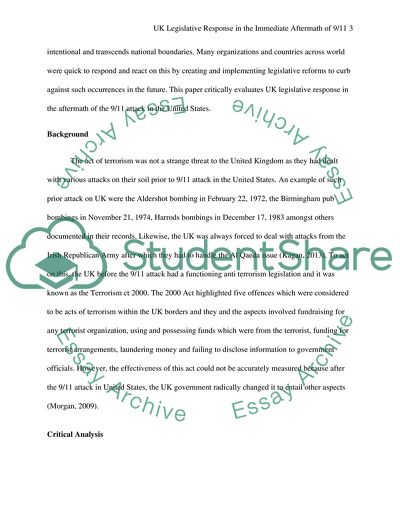Cite this document
(UK Legislative Response in the Aftermath of the 11th of September Research Paper, n.d.)
UK Legislative Response in the Aftermath of the 11th of September Research Paper. Retrieved from https://studentshare.org/politics/1869210-critically-evaluate-the-uk-legislative-response-in-the-immediate-aftermath-of-911
UK Legislative Response in the Aftermath of the 11th of September Research Paper. Retrieved from https://studentshare.org/politics/1869210-critically-evaluate-the-uk-legislative-response-in-the-immediate-aftermath-of-911
(UK Legislative Response in the Aftermath of the 11th of September Research Paper)
UK Legislative Response in the Aftermath of the 11th of September Research Paper. https://studentshare.org/politics/1869210-critically-evaluate-the-uk-legislative-response-in-the-immediate-aftermath-of-911.
UK Legislative Response in the Aftermath of the 11th of September Research Paper. https://studentshare.org/politics/1869210-critically-evaluate-the-uk-legislative-response-in-the-immediate-aftermath-of-911.
“UK Legislative Response in the Aftermath of the 11th of September Research Paper”, n.d. https://studentshare.org/politics/1869210-critically-evaluate-the-uk-legislative-response-in-the-immediate-aftermath-of-911.


